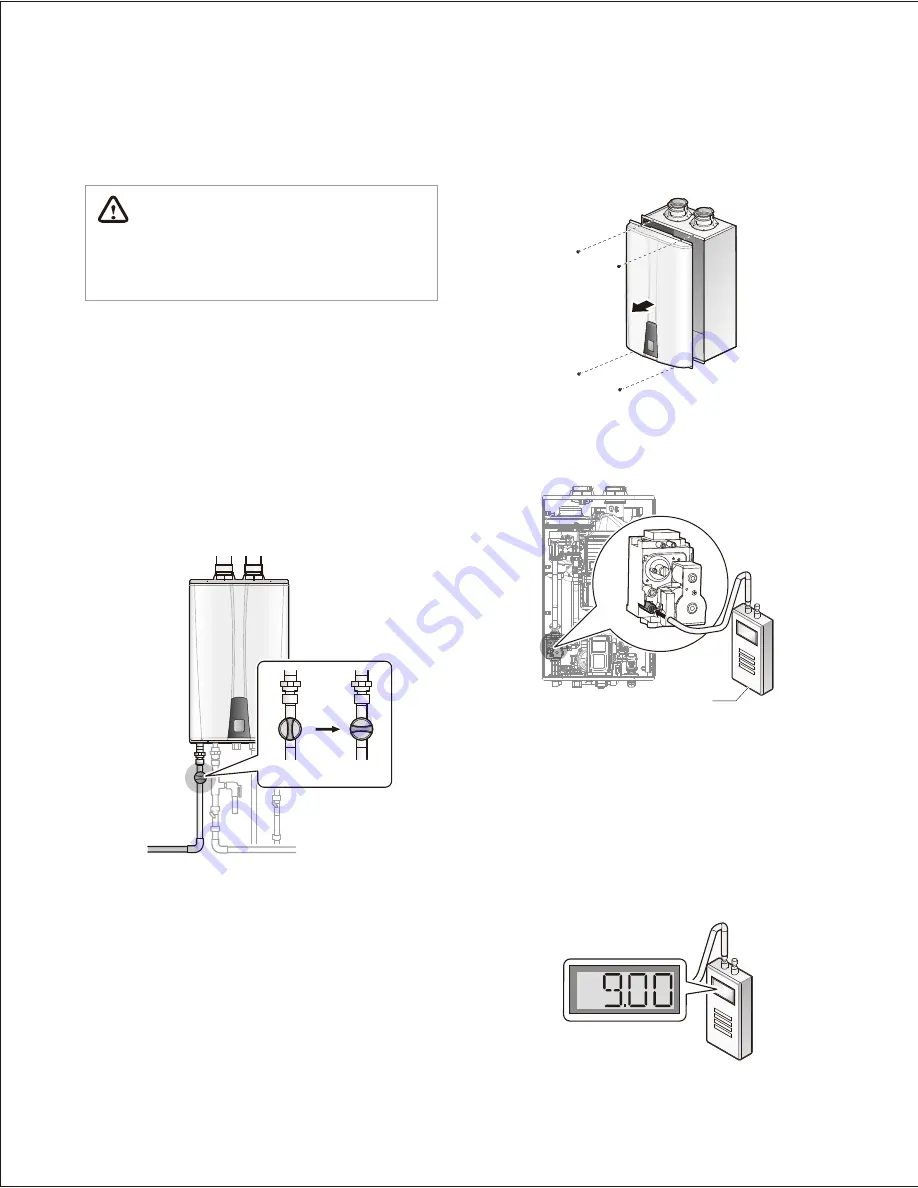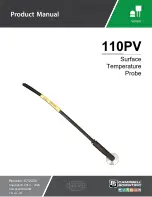
Version 2.21
24 NPE Service Manual
4. Remove the water heater front cover by loosening the
4 Phillips head screws securing it to the case.
5. Loosen the screw indicated in the figure below and connect a
manometer to the pressure port. Reset the manometer to zero
before use.
Digital pressure
manometer
6. Re-open the manual gas valve and check for leaks.
7. Open multiple fixtures that have high flow rates, such as
bathtub and shower faucets, to ramp the water heater up to its
maximum firing rate.
8. When the water heater reaches its maximum firing rate, check
the inlet gas pressure reading on the manometer. The gas
pressure must fall within the proper operating range indicated
above and in the specifications on page 25.
4.4 Measuring the Inlet Gas Pressure
WARNING
The water heater cannot function properly without sufficient
inlet gas pressure. Measuring the inlet gas pressure should be
performed by a licensed professional only.
●
The inlet gas pressure must be maintained between 3.5” and
10.5” WC for natural gas and between 8.0” and 13” WC for
liquefied propane.
●
The appliance and its individual shutoff valve must be
disconnected from the gas supply piping system during any
pressure testing of that system at test pressures in excess of
1/2 psi (3.5 kPa). The appliance must be isolated from the gas
supply piping system by closing its individual manual shutoff
valve during any pressure testing of the gas supply piping
system at test pressures equal to or less than 1/2 psi (3.5 kPa).
To measure the inlet gas pressure:
1. Shut off the manual gas valve on the gas supply line.
Gas Valve
Opened
Closed
2. Open a hot water faucet. The water heater should turn on and
the gas in the gas supply line will be purged.
3. Leave the faucet on until the water heater shuts down due to a
lack of gas supply, and then turn off the hot water faucet.
















































